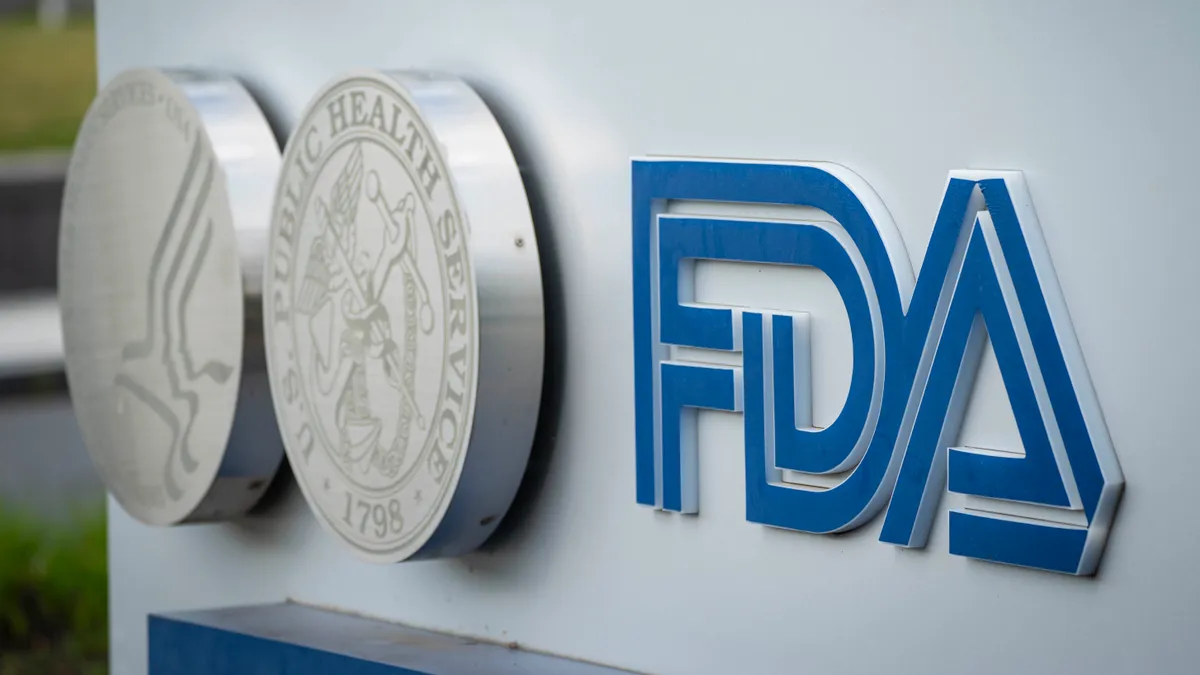Dive Brief:
- FDA has approved Nevro's spinal cord stimulation device for use in the treatment of chronic pain associated with painful diabetic neuropathy (PDN), opening up a market the company predicts could be worth billions of dollars.
- Most analysts said the timing and wording of the PDN approval are in line with expectations, although the team at SVB Leerink said the on-time decision will "likely be viewed positively" given "increasing concerns around FDA approval delays in MedTech more broadly."
- The news came alongside preliminary second-quarter results, with sales below the forecast Nevro provided in the first quarter. Still, with the company forewarning investors of its sluggish recovery, figures were not as bad as some analysts feared.
Dive Insight:
Nevro's valuation of the PDN market has been questioned. Baird analysts said skeptics "raise an eyebrow" and "then ask how big will this really be?"— but it is clear the company has high hopes for the opportunity.
The company has estimated the total addressable PDN market is worth $3.5 billion to $5 billion. In 2019, Nevro valued the entire spinal cord stimulation market at $2.5 billion.
With FDA approving Nevro Senza System in PDN, the company now has a chance to show whether its valuation is accurate. The approval is specific to Nevro's 10 kHz stimulation and supports use in the "management of chronic intractable pain of the lower limbs, including unilateral or bilateral pain, associated with diabetic neuropathy." Nevro is the first SCS company to win approval in PDN.
A commercial launch is now underway but it will take time to ramp up sales. Nevro is still forecasting "a mid-single digit million revenue contribution" from PDN this year, with most of the sales coming in the fourth quarter. The forecast reflects a revenue ramp that will "build gradually" as patients and physicians become aware of the product and follow the pathway from trial to permanent implants.
Analysts at J.P. Morgan see awareness as a key challenge to uptake.
"The primary barrier for greater adoption in the medium term, in our view, is the lack of current awareness among physicians, particularly endocrinologists. Given the physicians treating PDN are not particularly concentrated, generating the referral community is key to unlocking this market," the analysts wrote in a note to investors.
The J.P. Morgan analysts expect "a subset of physicians who are well aware of the technology" to drive early sales and enable Nevro to sell 200 implants this year. The analysts expect 150 of this year's implants to happen in the fourth quarter.
Reimbursement is the other barrier. As analysts at Truist Securities said in a note to investors, Nevro management has previously suggested 25% to 30% of covered lives would be reimbursed at the time of approval. Nevro began talks with payers after gathering six-month Senza data in PDN but the more recent 12-month data could be what unlocks the market.
"The strong data in hand should enable improving coverage here, especially coupled with health economics data that Nevro has just started to generate," the J.P. Morgan analysts wrote.
Nevro will need to launch in PDN while trying to get its existing business back on track. Last month, Nevro CEO Keith Grossman told analysts he was "frankly disappointed" at the pace of the recovery in the second quarter. Analysts responded by lowering their expectations for the quarter.
The company on Monday revealed preliminary second-quarter revenues of $102.3 million. The figure falls short of the $104 million to $106 million Nevro forecast at the time of its first-quarter results, but only $400,000 below the lowered consensus analyst estimate. J.P. Morgan and Truist analysts both said the second quarter sales are "not as bad as feared."
Nevro plans to update its guidance when it reports its full second-quarter results early next month. Analysts are braced for a reduction in full-year guidance in light of new comments made by Nevro.
"The recovery of procedural volumes in the pain market generally and the SCS market specifically has been slower than we anticipated, impacting not only second-quarter revenues, but in the case of lower trial procedures, revenue in future months as well," Grossman said in a statement.









